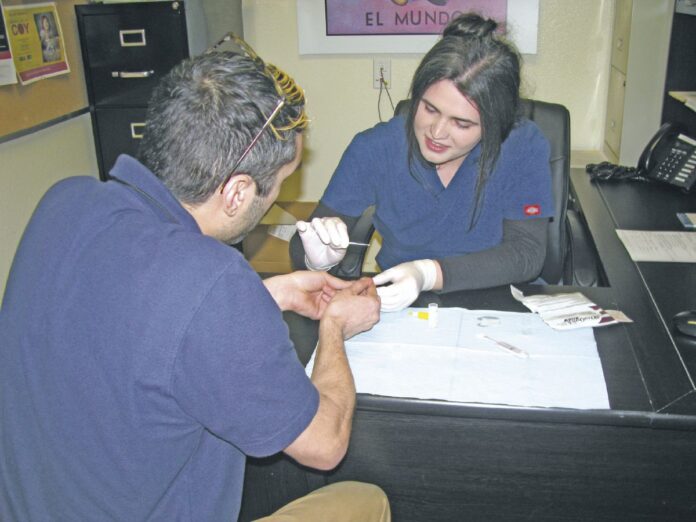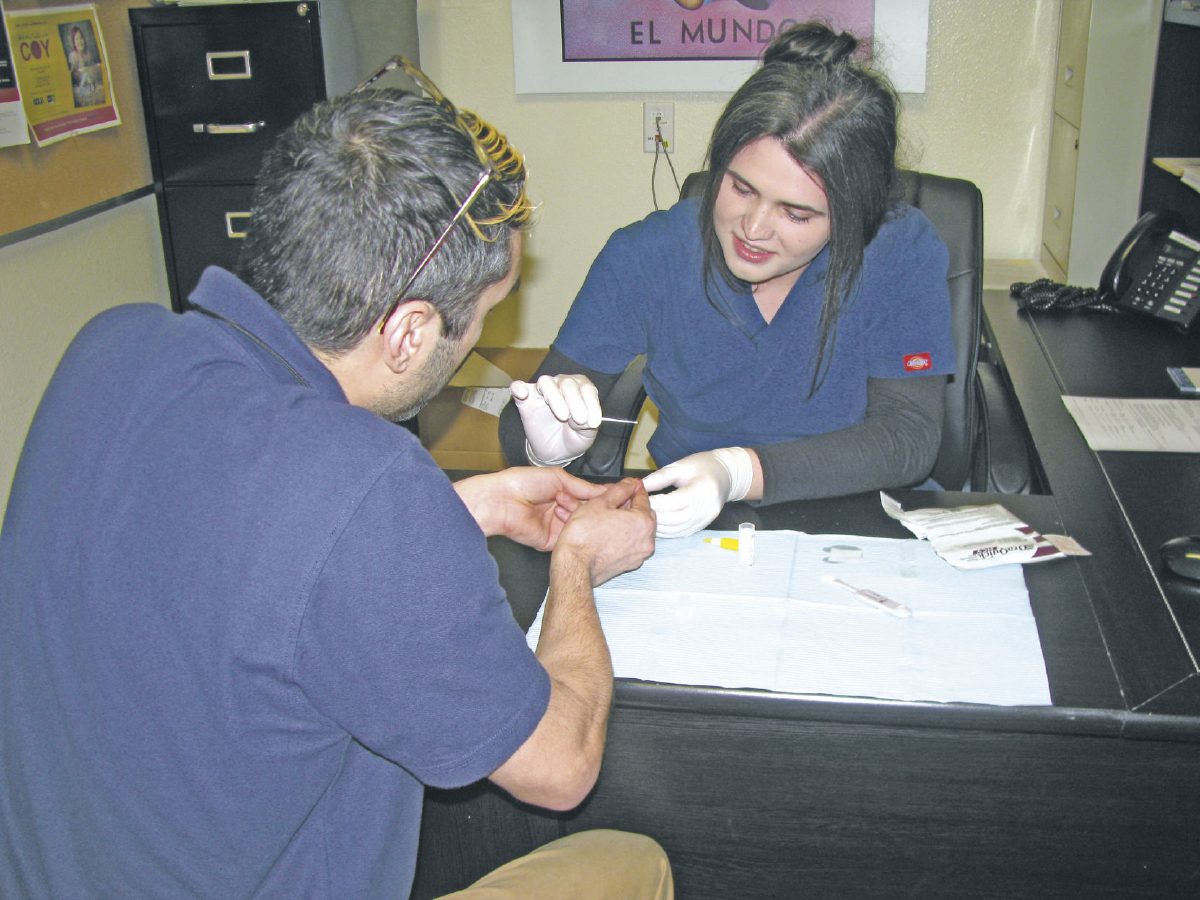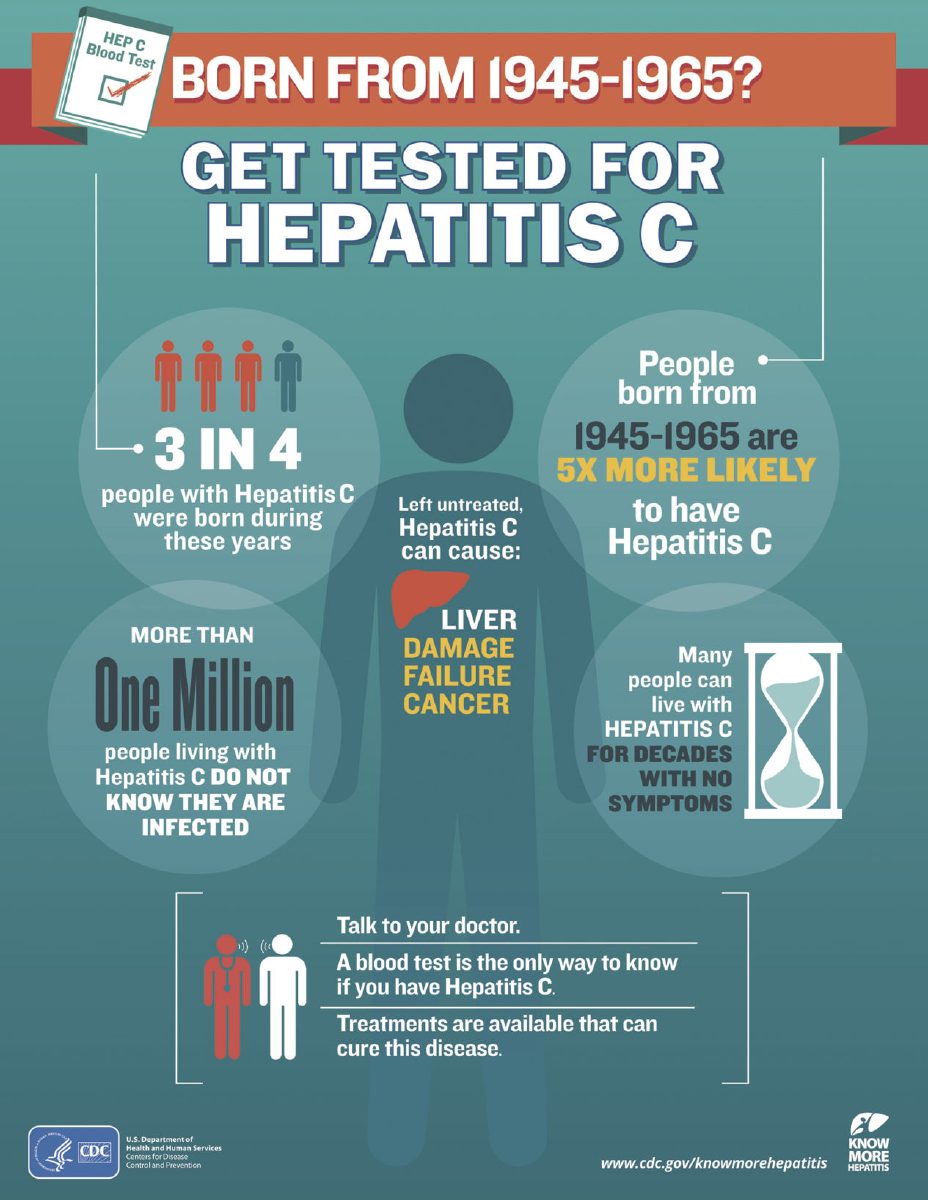HARLINGEN — Valleyites are at a significantly greater risk for hepatitis C infection than people in other parts of the United States.
No one knows why for sure, but the Valley AIDS Council is trying to change that, says Rick Prieto, recovery specialist.
“It could be similar to other parts of the country, but other parts of the country have better access to medical care so their rates have decreased,” Prieto said.
In response to this higher rate of hepatitis C, a grant has been awarded to fund efforts to combat the problem.
The Valley AIDS Council is now partnering with several other organizations to identify people with disease.
The hepatitis C virus is a contagious liver disease spread primarily through the blood of someone who’s infected.
It can be contracted by sharing needles to inject illicit drugs, through blood transfusions and various other means.
“There have been verified cases in the last couple of years of Hep C transmission from people sharing drug straws, like a dollar bill rolled up,” Prieto said.
“That’s been documented, but again there’s still a lot of ongoing research. We don’t fully understand the nasal transmission. Twenty percent of people with Hep C don’t actually report any of these risk factors we’re talking about.”
Symptoms include fever, fatigue and nausea. Most people show no symptoms and don’t know they have the disease. It can be fatal if left untreated.
A study conducted in 2016 by the University of Texas Health Science Center at Houston School of Public Health sampled blood from 1,331 Cameron County residents. Specifically, they tested for the antibodies associated with Hep C and 30 of those participants tested positive.
That’s 2.3 percent, noticeably more than the national average of 1.6 percent.
“What’s interesting about that is there is not a lot of data collection and research that’s been done in the Valley or on the borders of Texas in general,” Prieto said. “A lot of the studies you will read about the area cite a census that was done in the mid 90s.”
A number of factors could explain why the rate of hepatitis C infection is higher in Cameron County than in other parts of the country.
“In the Valley, the majority of people can’t afford doctor visits and lab costs,” Prieto said. “That’s a challenge, but we are going to make partnerships to figure that out.”
VAC has received a three-year grant to combat the area’s high rate of hepatitis C. That grant is Targeted Access to Community Knowledge, Linkage to treatment, and Education (TACKLE) for HIV/HCV in people of color. It also includes several other organizations.
The grant is funding several endeavors related to this mission. One of those endeavors aims to identify people with Hep C through screening.
“The screening is two parts,” Prieto said. “We poke your finger. It’s a rapid antibody test looking for Hep C antibodies. What that tells us is that at one point you have been exposed to the virus. What it does not tell us is whether you actually need treatment, because up to 20 percent of the population will actually clear the virus on their own. The bodies get rid of it.”
Another test, called a viral load test, determines how much of the virus is in a patient’s system.
“That will tell us what course we need to follow for treatment,” he said.
The grant pays for all this testing as well as a FibroScan machine.
“The FibroScan machine shows what stage the Hep C’s at, how much liver scarring has happened,” Prieto said. “It’s also called cirrhosis.”
VAC will begin training employees on the proper use of the FibroScan next month. The grant also allows for the hiring of extra medical personnel to begin screening and treating Hep C cases. Treatment requires a daily oral dosage for 90 days and it can be expensive. Manufacturers of these drugs are offering rebates and other assistance.
“VAC is now slowly rolling out a program for uninsured people,” Prieto said. “We are working on linking people to care once they are screened.”
Prieto said the Hep C issues is related to VAC’s work to address the opioid epidemic here. Opioids include heroin, some painkillers and Oxycontin.
“We started doing overdose prevention recently so in that work we’re basically offering recovery support services,” he said.
“A lot of people here want Hep C treatment. We drug test them prior to treatment and during treatment, so they’re really motivated to stop using, to get help to detox, so that they can access the cure.”
UT Health San Antonio was awarded the three-year, $6.5 million grant to study hepatitis C in people living with HIV. The grant is from the Health Resources Services and Administration, an agency of the U.S. Department of Health and Human Services. VAC is one of their partners and is receiving $864,991.88 for the three years.






